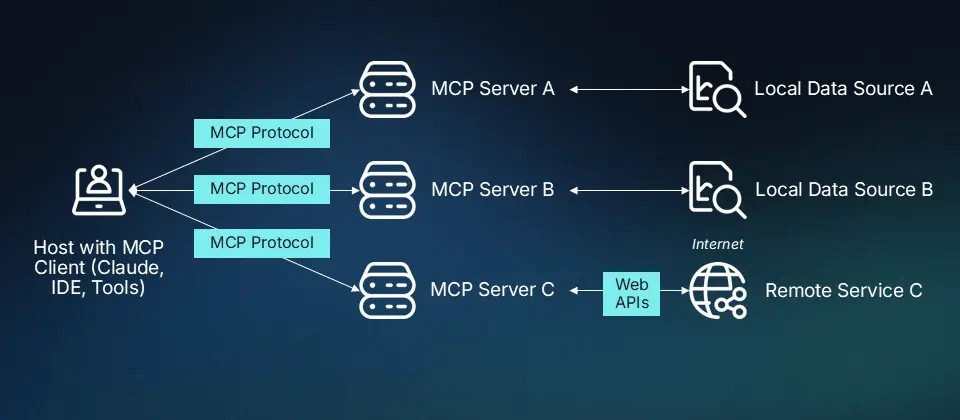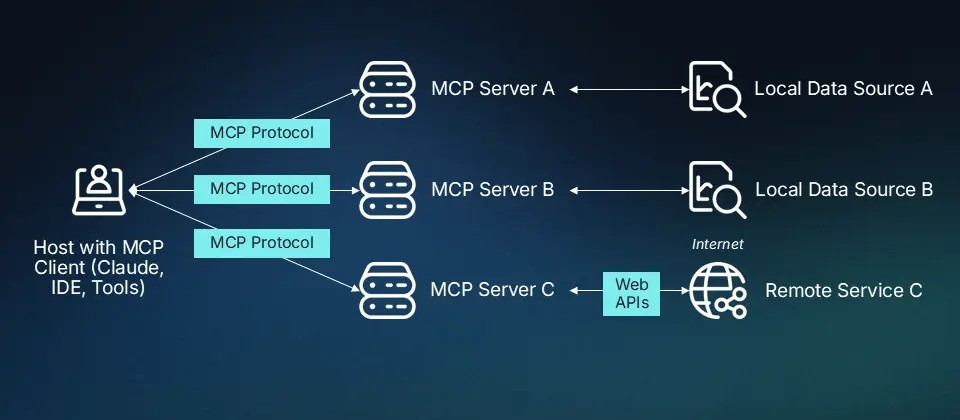In today’s high-velocity software development world, test automation has become the lifeblood of continuous integration and delivery. However, as testing needs grow more complex, automation tools must evolve to keep pace. One of the most promising innovations in this space is the Model Context Protocol (MCP), a powerful concept that decouples test logic from browser execution. While commercial implementations exist, open-source MCP servers are quietly making waves by offering scalable, customizable, and community-driven alternatives. This post dives deep into the world of open-source MCP servers, how they work, and why they might be the future of scalable test automation.
Understanding the Model Context Protocol (MCP)
To appreciate the potential of open-source MCP servers, we must first understand what MCP is and how it redefines browser automation. Developed by the Playwright team, MCP isn’t tied exclusively to Playwright, but rather, it represents a protocol that any automation engine could adopt.
So, what does MCP do exactly? In essence, MCP separates the test runner (logic) from the execution environment (browser). Instead of embedding automation logic directly into a browser context, MCP allows the test logic to live externally and communicate via a standardized protocol. This opens up a host of new architectural possibilities, especially for large-scale, distributed, or AI-driven test systems.
Related Blogs
Playwright MCP: Expert Strategies for Success
AI Agents for Automation Testing: Revolutionizing Software QA
Why MCP is a Game-Changer
MCP isn’t just another buzzword; it addresses critical pain points in automation:
- Isolates test logic from browser runtime: This separation ensures better test reliability and maintainability.
- Facilitates execution in headless or distributed environments: Perfect for CI/CD pipelines.
- Ideal for AI-augmented or low-code automation: Enables smarter, more intuitive testing workflows.
- Supports multi-user test scenarios: Especially useful in enterprise-grade environments.
With these benefits, it’s no surprise that open-source implementations are gaining traction.
A Look at MCP Architecture

The MCP ecosystem consists of four core components:
- Model: A logical representation of a user or a test robot. Each model can operate independently and have its own logic.
- Context: A browser session that includes cookies, session storage, and isolation parameters. Think of it like a sandbox for each model.
- Client: Any tool or script that sends MCP-compatible requests. This could be anything from a custom CLI tool to IDEs like Cursor.
- Server: The engine that receives MCP requests and interacts with the browser, typically using Playwright.
This modular design is what makes MCP so flexible and scalable.
Leading Open Source MCP Servers
1. Playwright MCP Server (@playwright/mcp)
Maintained by: Microsoft / Playwright team
GitHub: @playwright/mcp
Stable Version: 0.0.18 (as of 2025)
License: MIT
Key Features:
- Native integration with Playwright automation protocols
- JSON-RPC over WebSocket for efficient communication
- Stateless operation supporting multiple contexts
- Compatible with tools like Cursor IDE and Playwright SDKs
Supported Modes:
- Headless/Headed execution
- Browser context pooling
- Multi-client distributed control
This is the gold standard for MCP implementation and a natural choice for teams already invested in Playwright.
2. Custom Python MCP Server (Community Maintained)
Built with: FastAPI + WebSockets
Use Case: Ideal for integrating with Python-based test frameworks like Pytest or Robot Framework
Availability: Various GitHub forks
Key Features:
- Lightweight JSON-RPC server
- Easy to customize and extend
- Docker-compatible for seamless deployment
For teams entrenched in the Python ecosystem, this implementation offers both simplicity and flexibility.
3. Headless MCP Containers
Use Case: Containerized MCP environments with pre-configured browsers
Technology: Typically built using Docker + @playwright/mcp
How it Works:
- Each container spins up a browser (e.g., Chrome, Firefox, WebKit)
- Exposes MCP endpoints for remote execution
Perfect for CI/CD pipelines and parallel testing jobs. This method is particularly effective for scaling test runs across distributed environments.
Related Blogs
Real-World Applications of MCP
The adoption of MCP is already evident in several real-world tools and workflows:
- Cursor IDE: Allows real-time interaction with the MCP servers for Playwright tests
- GitHub Copilot for Tests: Uses MCP to analyze pages and auto-suggest test actions
- VSCode Extensions: Integrate with local MCP servers to support live test debugging
- CI Pipelines: Run MCP in headless mode to enable remote execution and test orchestration
These integrations illustrate the versatility and practicality of MCP in modern development workflows.
Ecosystem Support for MCP
| Sno | Tool | MCP Support |
|---|---|---|
| 1 | Cursor IDE | Full |
| 2 | Playwright SDKs | Partial/Native |
| 3 | Puppeteer | Not yet |
| 4 | Selenium | Not yet |
Clearly, MCP is becoming a key pillar in Playwright-centric ecosystems, with more tools expected to join in the future.
Final Thoughts: The Future is Open (Source)
Open-source MCP servers are more than just a technical novelty. They represent a shift towards a more modular, scalable, and community-driven approach to browser automation. As teams seek faster, smarter, and more reliable ways to test their applications, the flexibility of open-source MCP servers becomes an invaluable asset. Whether you’re a DevOps engineer automating CI pipelines, a QA lead integrating AI-driven test flows, or a developer looking to improve test isolation, MCP provides the architecture to support your ambitions. In embracing open-source MCP servers, we aren’t just adopting new tools; we’re aligning with a future where automation is more collaborative, maintainable, and scalable than ever before.
Interested in contributing or adopting an open-source MCP server? Start with the @playwright/mcp GitHub repo. Or, if you’re a Python enthusiast, explore the many community-led FastAPI implementations. The future of browser automation is here, and it’s open.
Frequently Asked Questions
-
What is an Open Source MCP Server?
An Open Source MCP (Model Context Protocol) Server is a backend service that separates test logic from browser execution, allowing for modular and scalable automation using community-maintained, customizable tools.
-
How does MCP improve test automation?
MCP improves automation by isolating the test logic from browser context, enabling parallel execution, better debugging, and support for headless or distributed systems.
-
Is MCP only compatible with Playwright?
No. Although developed by the Playwright team, MCP is a generic protocol. It can be adopted by other automation tools as well.
-
What are some popular Open Source MCP implementations?
The most notable implementations include Microsoft’s @playwright/mcp server, community-driven Python MCP servers using FastAPI, and Docker-based headless MCP containers.
-
Can I integrate MCP into my CI/CD pipeline?
Yes. MCP servers, especially containerized ones, are ideal for CI/CD workflows. They support headless execution and can be scaled across multiple jobs.
-
Is MCP suitable for low-code or AI-driven testing tools?
Absolutely. MCP’s modular nature makes it ideal for low-code interfaces, scriptable UIs, and AI-driven test generation tools.
-
Does Selenium or Puppeteer support MCP?
As of now, Selenium and Puppeteer do not natively support MCP. Full support is currently available with Playwright-based tools.
The post Open Source MCP: Powering Scalable Test Automation appeared first on Codoid.
Source: Read More


